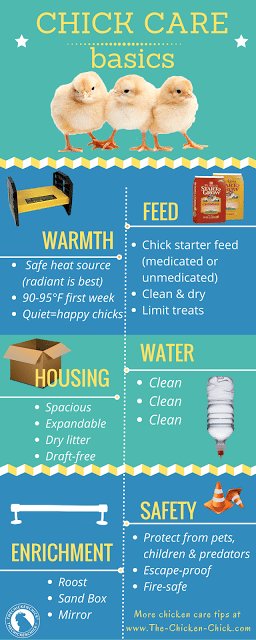
A Comprehensive Guide to Caring for Baby Chicks: Nurturing Your Feathered Friends
Introduction
Baby chicks, with their adorable fluff and inquisitive nature, can bring immense joy to any household. However, caring for these delicate creatures requires a comprehensive understanding of their specific needs and a commitment to providing them with a nurturing environment. This article will delve into the essential aspects of baby chick care, empowering you to raise healthy and thriving feathered companions.
Housing and Environment
Brooder:
- Provide a brooder, a warm and enclosed space, for the first 6-8 weeks of life.
- Line the brooder with absorbent bedding, such as pine shavings or paper towels.
- Maintain a temperature gradient within the brooder, with a warm area (95-100°F) for sleeping and a cooler area (75-85°F) for exploring.
- Use a heat lamp or heating pad to maintain the desired temperature.
Coop:
- Once the chicks are fully feathered, they can be moved to a coop.
- The coop should be well-ventilated, draft-free, and provide ample space for movement.
- Install perches at different heights to encourage roosting and exercise.
- Provide a nesting box lined with soft material for egg-laying hens.
Nutrition
Starter Feed:
- Feed chicks a high-quality starter feed formulated specifically for their nutritional needs.
- Starter feed should be available ad libitum, meaning the chicks have constant access to it.
- Gradually transition to grower feed around 6-8 weeks of age.
Water:
- Provide fresh, clean water at all times.
- Use a shallow waterer to prevent chicks from drowning.
- Change the water daily to maintain hygiene.
Supplements:
- Consider providing grit or oyster shells to aid in digestion.
- Electrolyte solutions can be beneficial during times of stress or illness.
Health and Hygiene
Vaccinations:
- Consult with a veterinarian about necessary vaccinations for your chicks.
- Vaccinations protect against common diseases, such as Marek’s disease and infectious bronchitis.
Parasite Control:
- Regularly check chicks for parasites, such as mites or lice.
- Use appropriate treatments as recommended by a veterinarian.
Hygiene:
- Keep the brooder and coop clean to prevent disease.
- Remove soiled bedding and droppings daily.
- Disinfect surfaces regularly with a poultry-safe disinfectant.
Behavior and Socialization
Handling:
- Handle chicks gently and support their bodies.
- Avoid holding them upside down or by their legs.
- Supervise children when interacting with chicks.
Socialization:
- Chicks are social creatures and thrive in groups.
- Introduce new chicks gradually to avoid aggression.
- Provide ample space and hiding places to reduce stress.
Troubleshooting Common Issues
Pasty Butt:
- A condition where droppings stick to the chick’s vent, causing discomfort.
- Gently remove the droppings with a warm, damp cloth.
- Apply petroleum jelly to the vent to prevent further sticking.
Leg Weakness:
- Can be caused by nutritional deficiencies or infections.
- Consult with a veterinarian for diagnosis and treatment.
- Provide a supportive environment with soft bedding and low perches.
Respiratory Problems:
- Symptoms include coughing, sneezing, and nasal discharge.
- Isolate affected chicks and consult with a veterinarian.
- Provide a warm and humid environment to aid breathing.
Conclusion
Caring for baby chicks is a rewarding experience that requires dedication and a deep understanding of their specific needs. By providing a nurturing environment, ensuring proper nutrition, maintaining good hygiene, and addressing health issues promptly, you can raise healthy and happy feathered companions that will bring joy to your life for years to come. Remember, the well-being of your chicks depends on your attentive care and commitment to their welfare.
